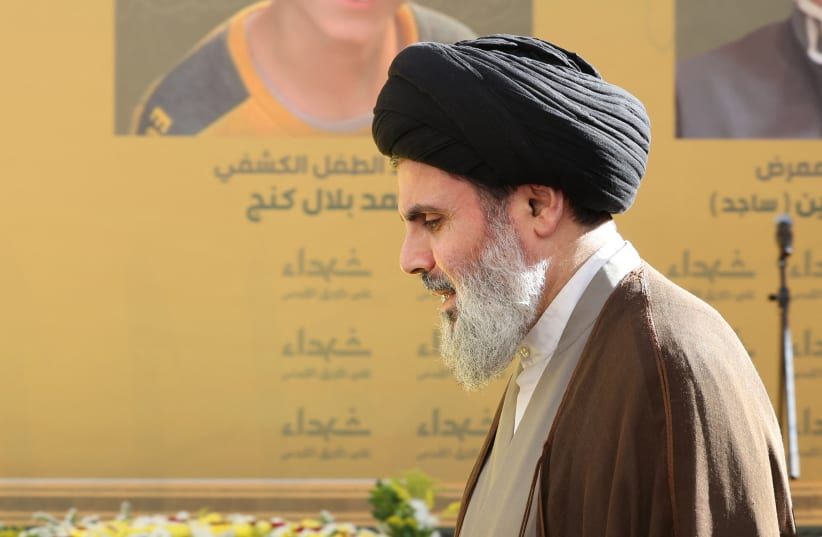
Likely killed in an Israeli airstrike on Beirut’s southern suburbs on Thursday, October 3rd, Hachem Safieddine, whose body was found on Tuesday, October 22nd, was an influential figure within Hezbollah. Born in 1964 in Deir Qanoun Al Naher, South Lebanon, he was a maternal cousin of the pro-Iranian group’s secretary-general, Hassan Nasrallah.
In the 1980s, Safieddine studied theology in Najaf, a major center of Shia Islam in Iraq, and later in Qom, Iran. He joined Hezbollah in the early 1990s at the request of his cousin, who had just taken over its leadership. However, according to the U.S. Department of State, his ties with the group date back to its founding in 1982.
He quickly rose through the ranks: initially appointed head of the party’s activities in Beirut, he later became head of the Jihad Council, overseeing Hezbollah’s military operations, and became a member of the Shura Council, responsible for planning, managing, and implementing the organization’s policies in all areas.
In 1998, Safieddine was promoted to head of Hezbollah’s Executive Council, overseeing the group’s social, economic, and political activities. This promotion placed him among its most important members.
His position was strengthened by his close ties with senior figures of the Iranian regime. His brother Abdallah has been Hezbollah's representative in Iran since the 1980s, during the same period when Hachem was studying there.
Another example of this close relationship came in June 2020 when his son, Sayyed Reza Hashem Safieddine, married Zeinab Soleimani, daughter of the former commander of the Quds Force, the branch responsible for external operations of Iran’s Islamic Revolutionary Guard Corps, Qassem Soleimani, who had been assassinated just a few months earlier, in January 2020.
This close relationship with Iran significantly contributed to his designation as his cousin's successor in the event of his death. His candidacy was supported by the Islamic Republic, leading some observers to believe that he was the real number two in Hezbollah, not Naim Qassem, who holds that position politically.
In 2017, his name was added to the US Department of State’s terrorist list, and he became the subject of sanctions from Washington.
Although Hachem Safieddine rarely appeared in the international media, he played a crucial role in Hezbollah’s internal management and in its relationship with other pro-Iranian political forces. His discretion and pragmatism earned him a reputation as an effective manager and an ideologue loyal to the movement’s guiding principles.
Moreover, his oratory skills were recognized by his peers, and he shared similar speech patterns with his cousin. This resemblance, along with his physical similarity to Nasrallah, were additional factors that made him the likely successor to Hezbollah’s leadership.




Comments